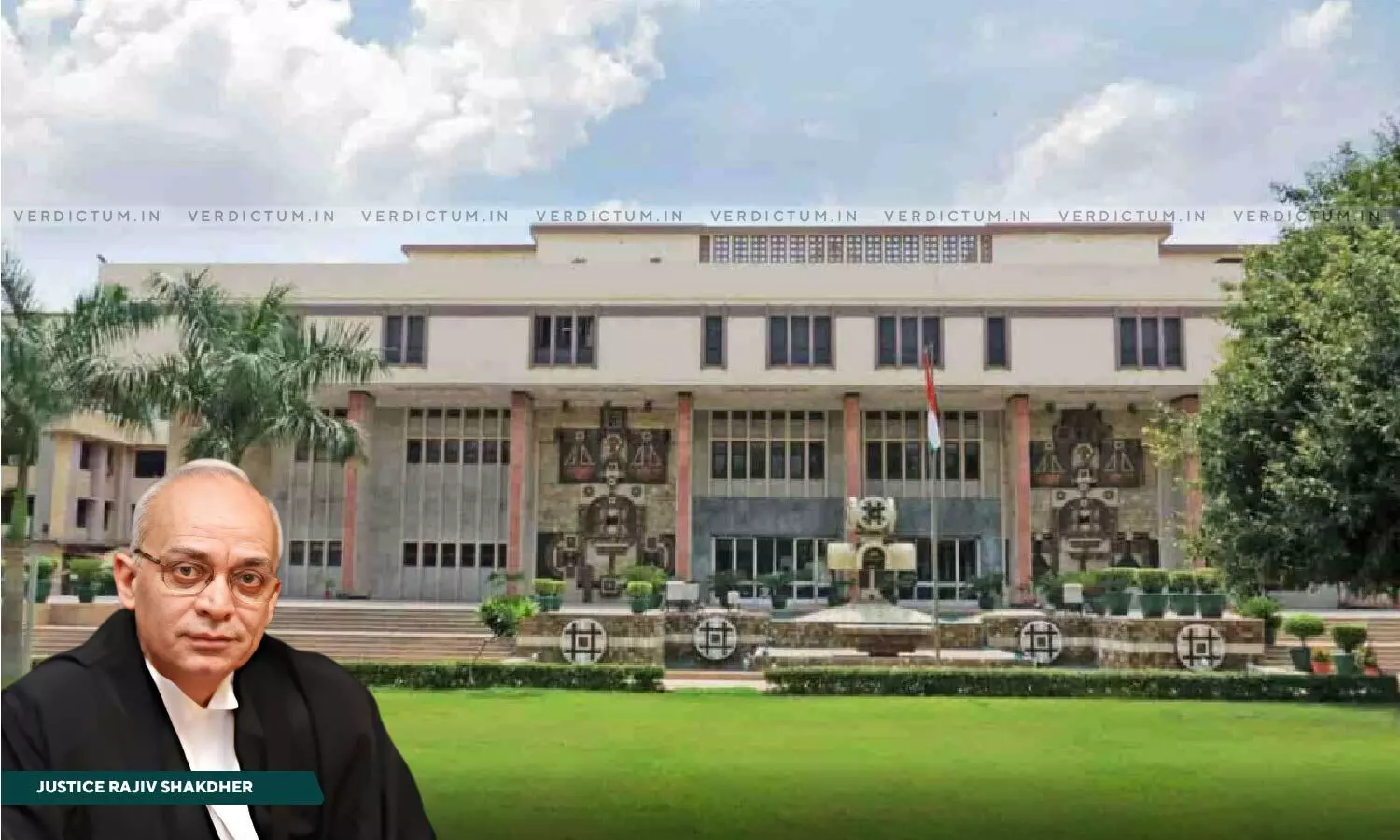
Chargeability To Tax Is Paramount Condition For Triggering Obligation To Deduct TAS U/S. 195 Of Income Tax Act: Delhi HC
 |
|The Delhi High Court observed that the chargeability to tax is the paramount condition for triggering the obligation to deduct TAS (Tax Deducted At Source) as per Section 195 of the Income Tax Act, 1961 (ITA).
The Court held thus in an appeal concerning Assessment Year (AY) 2006-07 that was filed by the Commissioner of Income Tax (CIT) against the order of the Income Tax Appellate Tribunal (ITAT).
A Single Bench of Justice Rajiv Shakdher observed, “Given this position, as correctly argued on behalf of the respondent/assessee, it was not obliged to deduct TAS from payments made to MC Metal (Thailand) and Metal One (Singapore). Chargeability to tax is the paramount condition for triggering the obligation to deduct TAS. The plain language of sub-section (1) of Section 195 brings this aspect of the matter to the fore.”
Senior Standing Counsel Ruchir Bhatia appeared for the appellant while Senior Advocate M.S. Syali appeared for the respondent.
Facts of the Case -
An instant appeal was admitted in 2014 when the coordinate bench framed some questions of law. Since there was a difference of opinion between the judges who comprised the division bench concerning the answers to the questions of law, the matter was referred to a third judge. In the first instance, the bench which rendered the decision consisted of Justice S. Muralidhar (as he then was) and Justice Prathiba M. Singh. A perusal of the decision disclosed that while the former Judge answered both questions in favour of the assessee, the latter Judge took a converse view i.e., answered the questions in favour of the revenue. The following were the two questions that were framed:
(i) Whether the ITAT fell into error in holding that Section 40(a)(i) of the Income Tax Act, 1961 cannot be applied in view of the provisions of the Double Tax Avoidance Agreement between the Indian (sic) and Japan and India and the US?
(ii) Whether the ITAT fell in error in reversing the findings of the DRP with respect to the existence of the PEs in India?
The division bench stated the points of law on which they had differed while rendering their respective decisions in 2017 and the assessee entered into transactions with certain group companies, reference to whom was made hereafter. Qua the transactions executed between the assessee and its group companies, remittances were made. However, the assessee made remittances without deducting TAS and the Assessing Officer (AO) took umbrage and disallowed the deductions claimed by the assessee. It ordered the disallowance under Section 40(a)(i) of ITA.
The High Court in the above regard noted, “As regards the transactions entered into by the respondent/assessee with the remaining two entities, i.e., MC Metal (Thailand) and Metal One (Singapore), the respondent/assessee does not press the argument of equal treatment as the DTAAs entered into by India with Thailand and Singapore do not contain an equal treatment/non-discrimination clause.”
The Court said that the reliance on the judgment rendered by the Supreme Court in Transmission Corporation of AP Ltd. v. CIT (1999) 239 ITR 587 (SC)] is misplaced, as that was a case involving a composite transaction where the trading receipt was embedded with a component of income.
“… the respondent/assessee has contended and, in my view correctly, that since the two companies referred to above, i.e., MC Metal Thailand and Metal One Singapore, do not have a PE in India, the payments made to them are not chargeable to tax in India. Articles 7 of the India-Thailand and India-Singapore DTAAs, respectively, provide complete clarity in that behalf. The AO, via convoluted logic, has concluded that since MC (Japan) had a LO in India, on account of the similarity of business models, it ought to be concluded that these two companies, amongst other companies, also had PE in India. On the other hand, the Tribunal has returned a finding that MC Metal Thailand and Metal One Singapore do not have a PE in India”, it observed.
The Court added that the Judge could not have reformulated the question after the pronouncement of the judgment and that the assessee could not have taken recourse to the DTAAs qua the reformulated question since the provisions contained therein were more beneficial. It, therefore, concluded that the business connection test had no relevance once it was established that MC Metal (Thailand) and Metal One (Singapore) did not have a PE in India.
Accordingly, the High Court answered the questions in favour of the assessee and against the revenue.
Cause Title- The Commissioner of Income Tax-II v. Mitsubishi Corporation India P. Ltd. (Neutral Citation: 2024:DHC:1179)
Appearance:
Appellant: Senior Standing Counsel Ruchir Bhatia and Advocate Deeksha Gupta.
Respondent: Senior Advocate M.S. Syali, Advocates Mayank Negi, Husnal Syali Negi, Tarun Singh, and Sandeep Yadav.